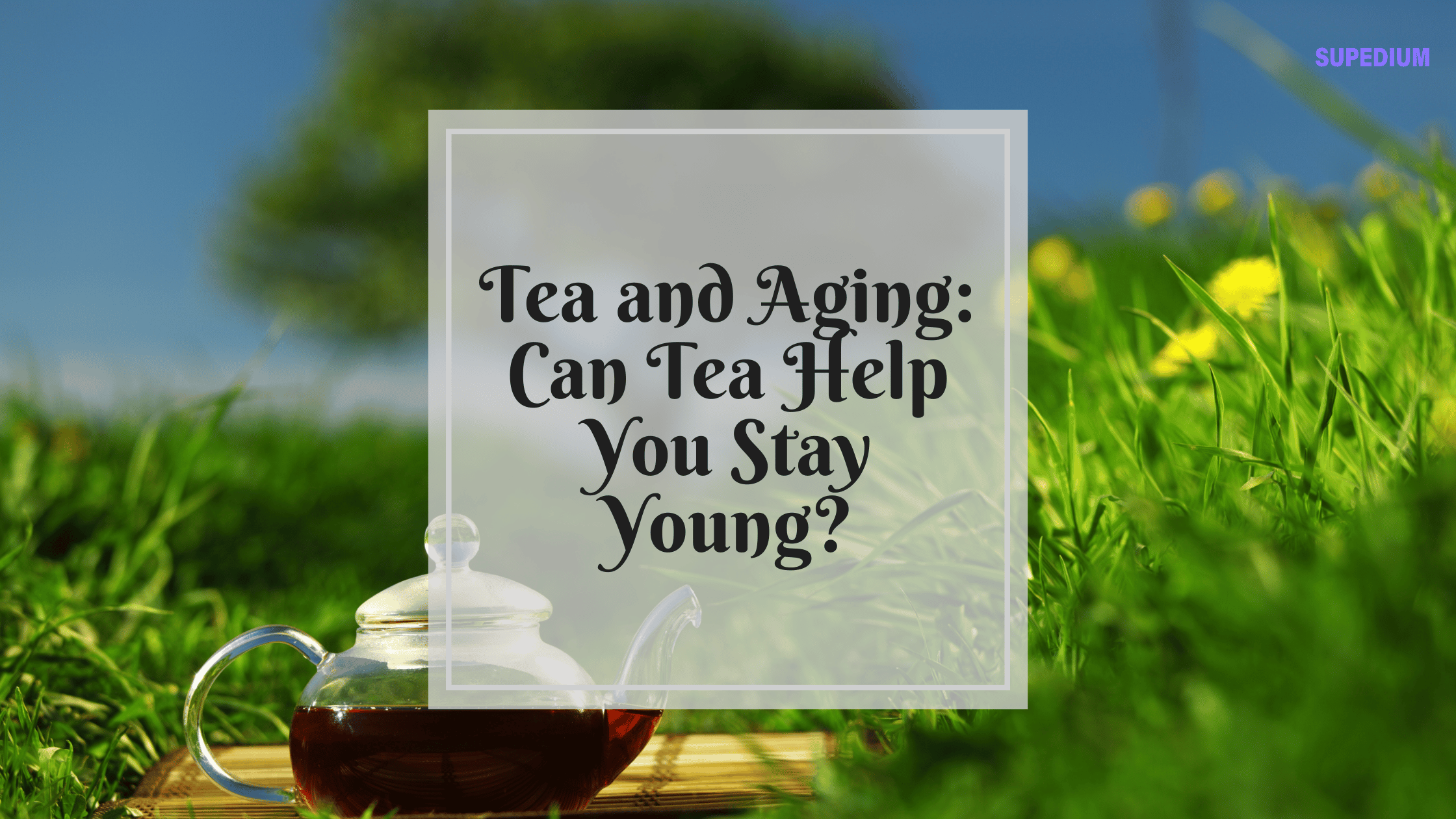Table of Contents
![]()
Introduction
Aging is a natural process characterized by various physiological and biochemical changes that occur over time. It encompasses both chronological age—the number of years a person has lived—and biological age, which refers to the functional and structural condition of their body. Common signs of aging include wrinkles, reduced muscle mass, decreased bone density, and cognitive decline. As researchers and individuals alike seek ways to promote longevity and maintain vitality, many turn to diet and lifestyle choices to help mitigate the effects of aging.
Tea, one of the most consumed beverages worldwide, has long been celebrated for its cultural significance and potential health benefits. From the green tea of Japan to the black tea of England, its varieties are renowned not just for their flavor but also for their purported effects on health. This article explores whether tea can help you stay young by examining its components, their impact on aging, and the science behind these claims.
The Science of Aging
Aging involves complex biological processes, including cellular aging and oxidative stress. Cellular aging refers to the gradual deterioration of cells, which can lead to diminished function and increased susceptibility to diseases. Oxidative stress, caused by an imbalance between free radicals and antioxidants in the body, contributes to cellular damage and accelerates aging.
The impact of aging on health is significant. As we age, we face a higher risk of chronic diseases such as cardiovascular conditions, cancer, and diabetes. Cognitive decline, including memory loss and reduced cognitive function, also becomes more prevalent. Understanding these mechanisms is crucial for identifying effective interventions to slow down or mitigate the effects of aging.
Nutritional and Bioactive Components of Tea
Tea is rich in various bioactive compounds that have been studied for their health benefits. The primary components of interest include catechins, polyphenols, flavonoids, and tannins.
Catechins and Polyphenols: Catechins, particularly epigallocatechin gallate (EGCG), are abundant in green tea. These compounds have strong antioxidant properties, which help combat oxidative stress and protect cells from damage. Polyphenols, another group of antioxidants found in tea, contribute to its potential health benefits by neutralizing free radicals and reducing inflammation.
Flavonoids and Tannins: Flavonoids, present in both green and black teas, are known for their anti-inflammatory and antioxidant effects. Tannins, also found in tea, possess antioxidant properties and may help protect against oxidative damage. These compounds play a role in reducing the risk of age-related diseases.
Other Components: Tea contains caffeine, which can have both positive and negative effects. In moderate amounts, caffeine can enhance cognitive function and alertness. L-theanine, an amino acid found in tea, promotes relaxation and may help mitigate the negative effects of caffeine.
Tea and Its Effects on Aging
Antioxidant and Anti-Inflammatory Effects: The antioxidants in tea, such as catechins and polyphenols, play a crucial role in combating oxidative stress, a major contributor to aging. Numerous studies have demonstrated that tea consumption can enhance the body’s antioxidant defense system, reducing oxidative damage and inflammation. For instance, research shows that EGCG from green tea can lower levels of oxidative markers and improve overall antioxidant status.
Cardiovascular Health: Regular tea consumption has been associated with improved cardiovascular health. Studies suggest that tea can help lower blood pressure, reduce cholesterol levels, and improve arterial function. For example, a review of clinical trials found that drinking green tea regularly was linked to a modest reduction in both systolic and diastolic blood pressure. These benefits can contribute to a lower risk of heart disease, which becomes increasingly important as we age.
Cognitive Function: Tea may also positively impact cognitive function and slow down age-related cognitive decline. Research indicates that compounds in tea, particularly EGCG, can improve memory and cognitive performance. Some studies have shown that regular tea drinkers exhibit better cognitive function and a lower risk of developing neurodegenerative diseases like Alzheimer’s.
Skin Health: The antioxidant properties of tea extend to skin health as well. Green tea, in particular, has been studied for its ability to protect against UV-induced skin damage and improve skin elasticity. Research suggests that topical application of green tea extract can reduce signs of aging such as wrinkles and improve skin hydration.
Research and Evidence
Clinical Studies: Numerous studies have investigated the impact of tea on aging. For instance, a large-scale cohort study found that individuals who regularly consumed tea had a lower risk of developing cardiovascular diseases. Another study on cognitive health revealed that green tea consumption was associated with a lower risk of cognitive decline in older adults.
Limitations of Current Research: Despite promising findings, research on tea and aging has limitations. Many studies rely on observational data, which can show associations but not establish causation. Additionally, variations in tea preparation methods and types make it challenging to standardize findings. More rigorous clinical trials are needed to confirm these benefits and better understand the optimal conditions for tea consumption.
Comparisons with Other Lifestyle Factors: It is important to consider tea consumption as part of a broader lifestyle approach to healthy aging. Diet, exercise, and genetics also play significant roles in aging. Tea alone cannot counteract the effects of an unhealthy lifestyle, but it can be a valuable component of a holistic approach to health and longevity.
Practical Recommendations
Types of Tea to Consider: Green tea is often highlighted for its high levels of catechins and antioxidants. Black tea and oolong tea also offer health benefits, although they contain lower levels of catechins compared to green tea. Herbal teas, such as rooibos and chamomile, provide different benefits and can be enjoyed as part of a varied tea regimen.
Recommended Consumption: For most people, drinking 2-3 cups of tea per day is considered beneficial. However, individual tolerance to caffeine and other components should be taken into account. It is advisable to avoid excessive consumption, particularly if it interferes with sleep or interacts with medications.
Lifestyle Integration: To maximize the benefits of tea, integrate it with other healthy habits. A balanced diet, regular physical activity, and mental stimulation are all important for maintaining health and vitality as you age. Drinking tea should complement these practices rather than replace them.
Conclusion
Tea holds promise as a potential ally in the quest for healthy aging. Its rich array of antioxidants and bioactive compounds offers various benefits, including improved cardiovascular health, cognitive function, and skin health. However, while tea can be a valuable part of a healthy lifestyle, it should not be viewed as a cure-all. More research is needed to fully understand its effects and optimize its benefits.
Share This





Be the first to comment